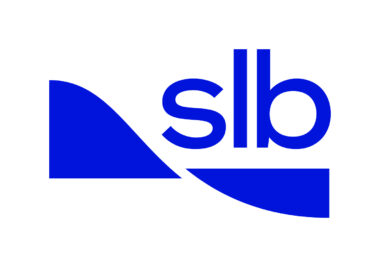New national research demonstrates that Australian businesses, especially those in manufacturing, retail, and financial services sectors, recognise the imperative of achieving net zero emissions as a key driver for economic competitiveness and climate resilience, but indicates many companies are not acting quickly enough to address this urgent challenge.
The findings of Schneider Electric's Sustainability Index, 2023 survey of over 500 key decision-makers across corporate Australia highlights the need for increased momentum in decarbonisation efforts. The report reveals that more than three-quarters (77%) claimed that sustainable transformation is needed to drive a competitive edge for companies.
This figure was the highest in the manufacturing industry, with 82% agreeing that sustainability creates a competitive edge. The research showed a broad agreement on the benefits of sustainability, with both retail, and the financial services industries following close behind at 80% and 79% respectively.
Over two-thirds (69%) of businesses also agree that Australia must meet net zero emissions targets to remain economically competitive. Here, professional, scientific, and technical services came out on top with eight in ten of its industry leaders seeing sustainability as an economic imperative. This is well above the national average of 69%.
The retail and manufacturing industries also rated highly on decarbonisation, with 71% of leaders acknowledging the economic advantage of meeting net zero emissions.
Schneider Electric is a global leader in the digital transformation of energy management and automation and its Pacific Zone President, Gareth O’Reilly said “It’s clear that businesses recognise the strategic importance of sustainable transformation. With less than 80 months until 2030, the challenge for businesses now is to fulfil that strategic opportunity at pace.”
Despite growing awareness and commitment to sustainability, the survey reveals that many businesses are falling short in implementing decarbonisation strategies. Only 52% of respondents across industries reported discussing or having a decarbonisation strategy in place. This indicates that a significant portion of Australian companies have yet to fully commit to the transition to a low-carbon future.
“To achieve the necessary emission reductions, it is essential that businesses set ambitious targets and map out the path to achieving them,” Mr O’Reilly said. “Many of the steps companies can take to improve energy efficiency and introduce their own renewable energy supply will not only improve their bottom line, but also protect them from volatility in energy supplies and pricing.”
The survey reveals that 42% of companies expect to achieve zero Scope 1 emissions by 2030, which refers to direct emissions from owned or controlled sources. Additionally, 37% aim for zero Scope 1-2 emissions, which adds indirect emissions from generation of purchased electricity, heating, and cooling consumed by the company.
Finally, 34% of businesses aspire to achieve zero Scope 1-3 emissions, which encompasses all indirect emissions in the value chain, including those associated with the procurement and use of products and services and are the hardest to achieve.
The professional, scientific, and technical services industry is also above the national average for decarbonisation plans with the research findings showing net zero expectations reach 56% for Scope 1, 41% Scope 1-2, and 39% 1-3. This is in comparison to the national averages of 42%, 37%, and 34% respectively.
Other industries showing increased optimism about the ability to impact emissions across the board include retail, and healthcare.
Comparisons across industries present a range of complexities in the road to net zero. The data underlines the need for industry-specific leadership on decarbonisation. Manufacturing leaders, for example, were some of the most likely to report that sustainability provides a competitive edge and is essential to Australia’s economic future, yet it is one of the least optimistic industries when it comes to reaching net zero across Scope 1, 2 and 3.
Conversely, healthcare leaders are among the most optimistic about their ability to reach net zero but had some of the lowest rates of positive engagement with sustainability as a competitive edge or economic imperative. This indicates leaders are facing varying challenges from industry to industry, requiring specific plans to drive sustainability engagement and impacts.
The Schneider Electric Sustainability Index, 2023 report underscores the need for immediate action and the importance of digital technology, with 78% of companies acknowledging its key role in achieving sustainability goals. In retail, this figure was 79%, in line with the national average. Meanwhile, professional, scientific, and technical services (89%), manufacturing (87%), and financial and insurance services (85%) were well above this figure.
Mr O’Reilly reiterated the urgency for businesses to act swiftly, stating, "Corporate Australia is ready to fully embrace sustainability, but we need to support businesses in turning these intentions to outcomes.
“Organisations must embrace sustainable transformation, prioritise digitalisation, and implement robust decarbonisation strategies now. The time for incremental change has passed; we must act with urgency to secure a sustainable and prosperous future. The moment is now."
To gain further insights into sustainability as an economic imperative and the role of technology in driving transformation, download Schneider Electric’s Sustainability Index, 2023 report.
About us:
About Schneider Electric
Schneider’s purpose is to empower all to make the most of our energy and resources, bridging progress and sustainability for all. We call this Life Is On.
Our mission is to be your digital partner for Sustainability and Efficiency.
We drive digital transformation by integrating world-leading process and energy technologies, end-point to cloud connecting products, controls, software and services, across the entire lifecycle, enabling integrated company management, for homes, buildings, data centres, infrastructure and industries.
We are the most local of global companies. We are advocates of open standards and partnership ecosystems that are passionate about our shared Meaningful Purpose, Inclusive and Empowered values.
Contact details:


